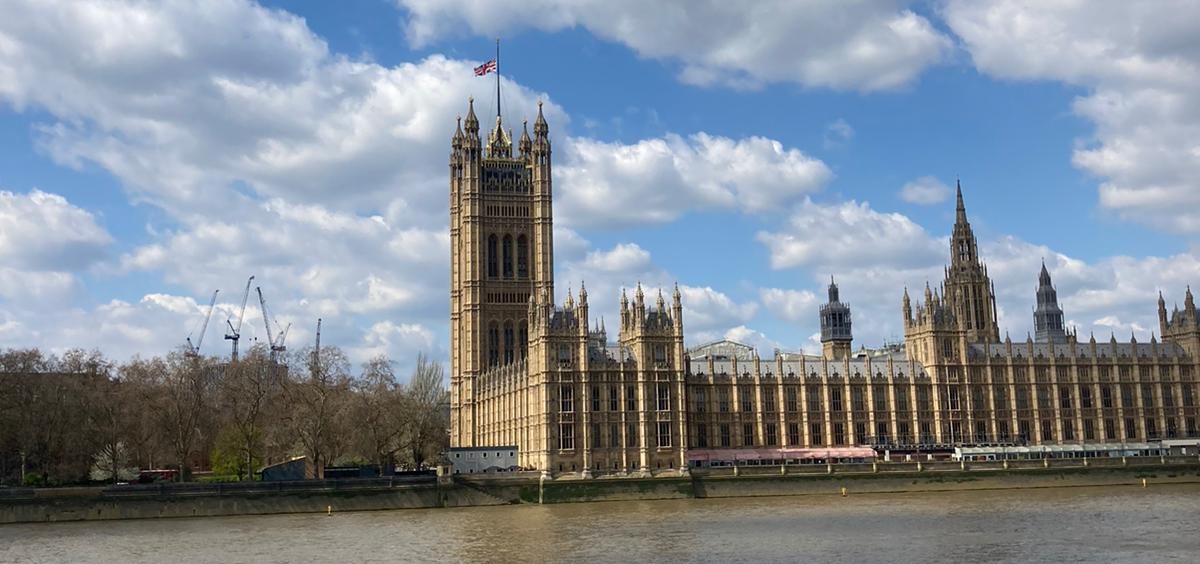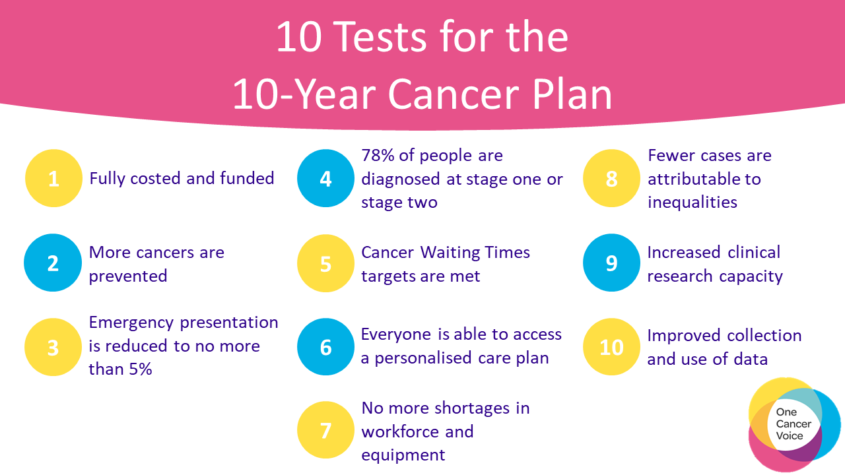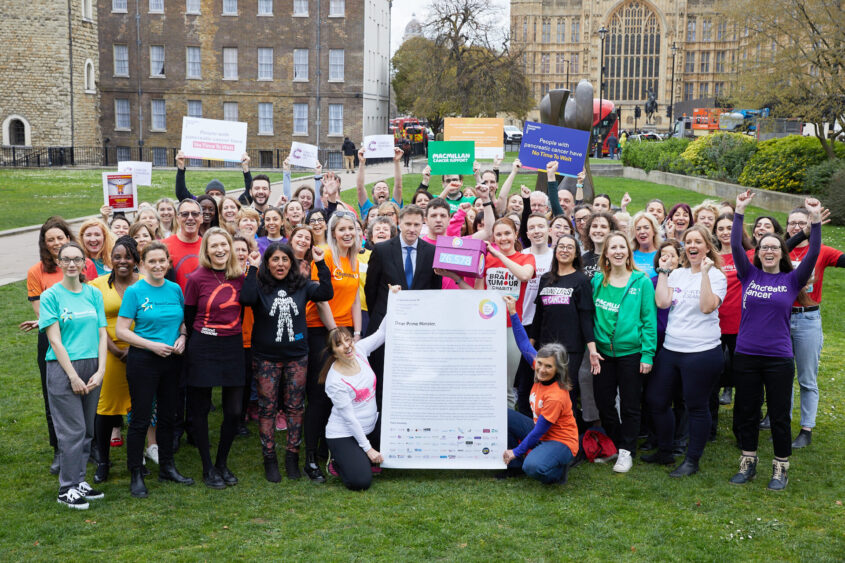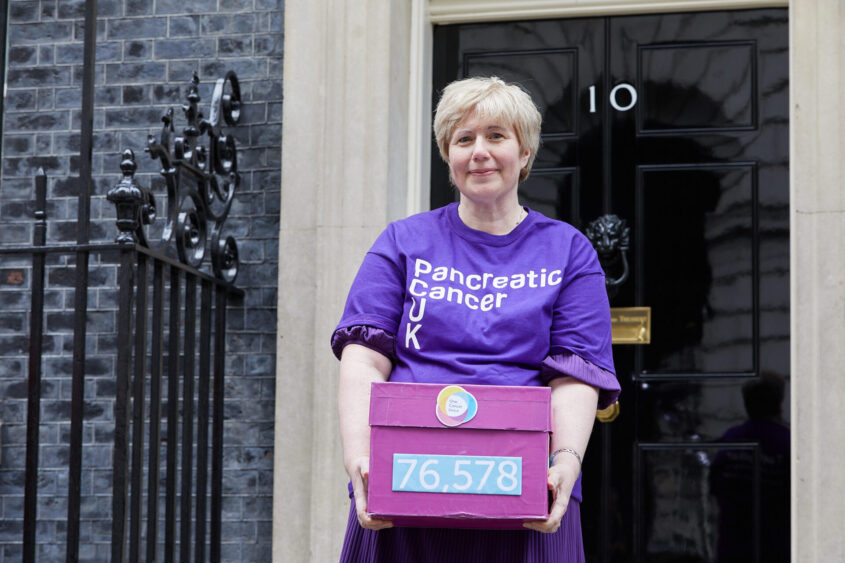How we influenced the 10-year cancer plan
Read our blog about everything we did as a charity to influenced the new cancer plan promised by the government.

In order to close the survival gap between pancreatic and other cancers, pancreatic cancer must be prioritised by the government.
When we responded to the government’s public Call for Evidence for it’s promised 10-year cancer plan for England, we told them everything that needs to happen to drastically improve treatment, care and survival for people with pancreatic cancer in the next decade – from early diagnosis, to better treatment, to innovative research and holistic support and information.
See our full submission to the government’s Call for Evidence, and the advice we gave to our supporter on sharing their own evidence.
Read our blog about everything we did as a charity to influenced the new cancer plan promised by the government.

We also worked with the rest of the sector on two other joint responses to the public survey:

After launching a ‘War on Cancer’ in 2022, the Government is yet to deliver on its promise to make England a world leader in cancer care. But we won’t stop campaigning until pancreatic cancer gets the attention it deserves.

Sign up to get the latest news on our campaigns and how you can get involved
